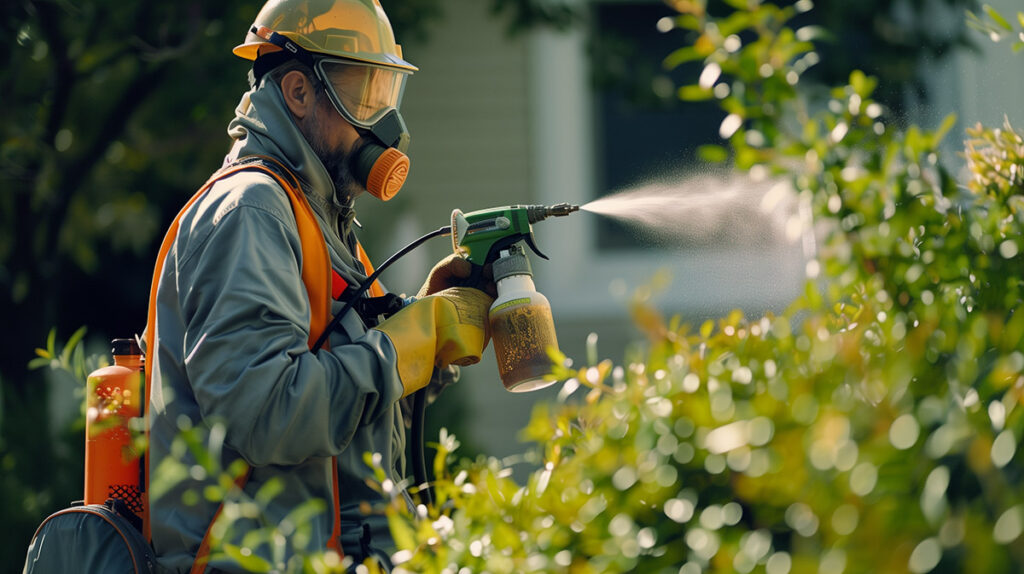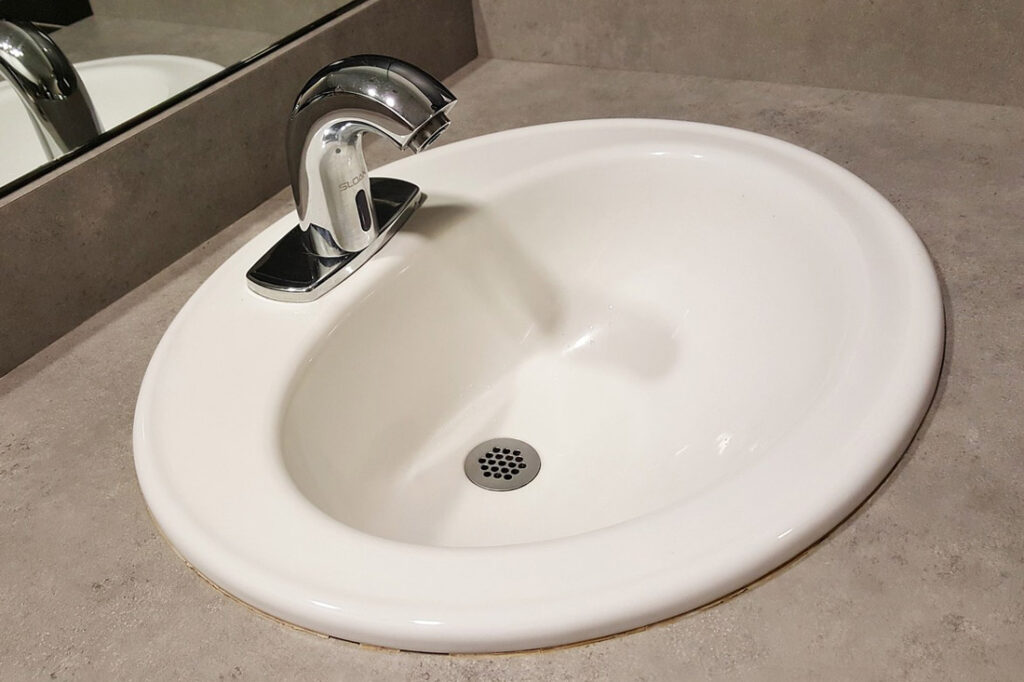Get Immediate Pest Control Help -
1-877-393-3401
Unfortunately for many homeowners, household pests like bed bugs, ants, and mice are all too common. But you can control and prevent infestations by making a few adjustments to your cleaning routine, being diligent about maintenance, and following other pest prevention tips. The key is to understand what typically encourages pest activity so that you can keep your home pest-free.
8 Tips for Preventing Pest Infestations
- Clean Your Home on a Regular Schedule
- Take Care of Maintenance Issues Quickly
- Store Food Properly
- Inspect Items You Bring Into Your Home
- Reduce Clutter
- Get Rid of Trash as Soon as Possible
- Tidy Up Your Landscaping
- Schedule Professional Pest Control
Pest control is often left to the experts when a pest problem or infestation arises, as it should be. But there are also several things you can do to reduce the risk of having a pest infestation in your home, with regular cleaning and maintenance being two of the most important factors.
👉 Recommended reading: What does permethrin kill?
1. Clean Your Home on a Regular Schedule
Although not always the case, pests typically invade homes with cleanliness issues, as dirt, food particles, standing water, and dirty dishes can make perfect homes for pesky pests. And even if your home looks clean at first glance, it may not be deep cleaned enough to keep a household pest away.
Get Immediate Pest Control Help -
1-877-393-3401
The most important thing you can do for residential pest control is to clean your space regularly, including spot and deep cleaning. For best practice, plan to spot clean areas of your home daily and weekly, with deeper cleanings every other week or monthly.
Your spot cleaning schedule should include cleaning and sanitizing kitchen counters and bathroom sinks, cleaning dirty dishes at least once a day – but preferably as soon as possible after they’re used – cleaning the stove, and taking out trash daily. At least once weekly, vacuum your home, clean in and around toilets, wipe down baseboards, and clean the oven.
Deep cleaning should include wiping down cabinet and pantry shelving, cleaning out the refrigerator, thoroughly scrubbing floors and baseboards, etc. Consider making a cleaning calendar to help remind yourself of when you should complete each cleaning task.
2. Take Care of Maintenance Issues Quickly
Not maintaining your home properly is one of the quickest ways to invite pests in. An unwanted pest typically only needs a tiny hole – often smaller than we can even see – to enter your home and bring their friends with them. Your first line of defense against pests is to block any access area you can see, like sealing gaps in window frames or replacing caulk around bathtubs and sinks. Essentially, most tasks you’d do to weatherproof your home can also help you keep bugs out.
Get Immediate Pest Control Help -
1-877-393-3401
Also, inspect your home for any water issues. Small leaks from faucets or under sinks can welcome pests who thrive and breed in moist areas. Fix any plumbing leaks and make sure your basement or crawlspace doesn’t have any leaks coming in through walls, which could make an ideal home for insects.
And maintenance isn’t just for your home, either. Standing water can occur outside your home, especially if your gutters haven’t been cleaned in a while or aren’t directing water away from your yard fast enough. Clean out gutters at least once a year and inspect them at the same time to make sure they’re doing their job effectively.
Look for and remove rotting wood around your home, too, like old deck boards, fencing, or garden borders, as they can attract termites looking for wood to feast on.
3. Store Food Properly
The smell of food attracts humans and animals; unfortunately, it does the same for household pests. One of the best ways to control pests is to store all food properly. Although the food in your fridge and freezer are likely safe, you’ll want to make sure your pantry items are in sealed containers once they’ve been opened. This is especially true for grain items, like rice and flour, which can attract weevils and other pesky critters that can be difficult to get rid of once you find them feasting in your pantry.
Best practice: place all opened pantry items in sealed containers to make your pantry less appealing and prevent pests from getting in.
Additionally, keep pet food sealed in an airtight container, as it’s a well-known cockroach and ant enticer and may even encourage mice or other small rodents to enter your home. Try to avoid keeping pet food in your pet’s food bowl when they’re not eating it, as it doesn’t take long for household pests to find it if it’s within their scent radius.
4. Inspect Items You Bring Into Your Home
A pest infestation can sometimes begin from something else coming into your home. For example, if you bought a couch from someone and were unaware that that person’s home had bed bugs, you may now have invited a bed bug family into your home. Pests can also enter your home from someone else’s clothes – this can happen with bed bugs and fleas, for example – or in boxes from packages you had delivered.
Take some time to inspect things entering your home. Look in the corners of boxes where bugs tend to hide, and discard boxes outside your home as soon as you empty them. Use a flashlight to inspect furniture closely, being sure to check under cushions and in the corners. Consider having furniture professionally cleaned and sanitized before welcoming pieces to your space.
5. Reduce Clutter
Clutter provides hiding spots for pests and makes it more difficult for you to spot a problem before it gets out of control. For example, a hall closet that acts as a catch-all for dirty shoes, damp jackets, and cleaning supplies like mops and brooms can easily attract a common pest family and give them plenty of space to find a good spot to breed and feed. Even clutter that’s more out in the open, like a messy bedroom or play area, can lay the foundation for a pest infestation.
Aim to reduce clutter in your home by shredding and recycling mail or documents you no longer need, organizing toys, jackets, shoes, and anything else that tends to get tossed in a corner, and getting rid of old newspapers and magazines taking up space on your end tables. Create an organization system in your home for the family to follow to avoid building up clutter regularly.
6. Get Rid of Trash as Soon as Possible
Trash is a hotbed for pest activity. In warm months, especially, a trash can with food in it for just a few hours could quickly encourage gnats and roaches to snack.
That’s why it’s crucial to take trash bags outside as soon as possible – at least once per day. Try not to toss food in the trash can until you’re ready to take out the bag, or use a compost bin to discard food more safely. Once you take your trash outside, place it in a covered container away from your home, if possible.
Also, try to deep clean your home’s trash bins at least once a week to get rid of any crumbs or smells that escape your trash bags, which can still be appetizing for pests.
7. Tidy Up Your Landscaping
An untidy landscape isn’t just unsightly for homeowners and neighbors; it can also lead to increased pest activity around your home. Tall grass and unkempt shrubs make for perfect hiding spots around your home, especially if your landscaping is also creating areas of standing water.
Be diligent about your yard and lawn care, including mowing the grass regularly and trimming bushes away from your home. Also, make sure tree branches don’t come near your roof, as they can create easy access for squirrels, raccoons, and other wildlife to get to your roof or attic.
Look for areas of pooling water, which can happen if your gutters aren’t draining properly or if you have low spots in your yard. Fill in holes and consider using gutter extensions if needed.
8. Schedule Professional Pest Control

A scheduled professional pest control service visits your home on a regular schedule – usually monthly, bimonthly, or seasonally – for pest prevention, monitoring, and treatment. While DIY pest control can sometimes work to prevent a pest problem, a professional exterminator can identify pests accurately and use tested strategies to prevent and control those pests.
Combine the pest control tips above with regular professional pest control for the best defense against common household pests.
Pest Control Tips by Season
Pest control looks different between seasons, as some pests are more active during one season than another. While some seasons might see more active pest infestations and treatments, others are better for pest prevention. Here are pest control tips for every season.
🌱 Spring Pest Control Tips
Spring is when a lot of pests start becoming active, although we don’t usually see the full extent of their populations until summer. This is true for stinging insects, cockroaches, ants, and mosquito populations, for example.
That makes spring an excellent time to spot potential problems and nip them in the bud before they get out of control. If you start to notice pest activity around your home in the spring, take action. Remove any dead shrubs or wood piles near your home, which can act as feasting grounds for insects. Also, clean out gutters and make sure they’re directing water away from your home properly.
☀️ Summer Pest Control Tips
Summer is prime time for many pests, like termites, mosquitoes, and wasps. During the summer months, you’ll see the most pest activity in your yard and may even spot insects like ladybugs or ants making their way into your home.
Throughout the summer, keep your lawn mowed and landscaping tidy. Also, monitor your yard to fix any standing water issues, like filling in holes from washed-away soil. Take the trash out as soon as possible, and keep your kitchen and bathrooms clean and dry.
🍂 Fall Pest Control Tips
Fall and winter months are the likeliest for rodents and wildlife to enter your home in search of a warm spot for their families. During the fall, focus on closing any potential entry points in your attic or roof. Screen your attic vents and chimneys if they aren’t already, and repair any damaged window screens in your home.
Also, seal cracks and gaps in the basement or crawlspace. Although these are often colder than the attic, they’re usually warmer than outside and can still make a good spot for wildlife to take up residence.
❄️ Winter Pest Control Tips
You probably won’t find many pests in or around your home or winter, so use these months to focus on prevention. Call a pest control service during the winter and ask about their year-round scheduled services. Many companies offer discounts in the fall and winter to encourage new customers to call, making it an excellent time to save.
Otherwise, do what you’d typically do to winterize your home, like replacing weather stripping and door seals and installing door sweeps to eliminate easy ways for pests to enter.
Be Proactive About Pest Control

Prevention is the best way to avoid having an out-of-control pest problem. By being proactive about pest control, you can usually avoid costly and lengthy treatments and repairs from pest damage.
Many pest control companies have routine services to monitor pest activity around your home, prevent infestations, and take care of any active infestations they come across. Better yet, most companies offer free quotes and free inspections to help you determine the best course of action for your home.
Call the best pest control companies in your area and ask, How much does pest control cost? You will likely need to schedule a visit with a specialist to come to your home to provide an inspection and quote for ongoing pest control. Get a few quotes to ensure you get the services and pricing that fit your needs.
Get Immediate Pest Control Help -
1-877-393-3401






